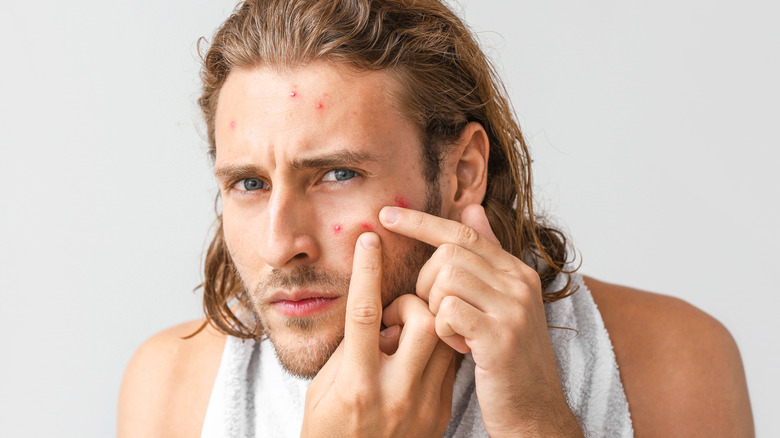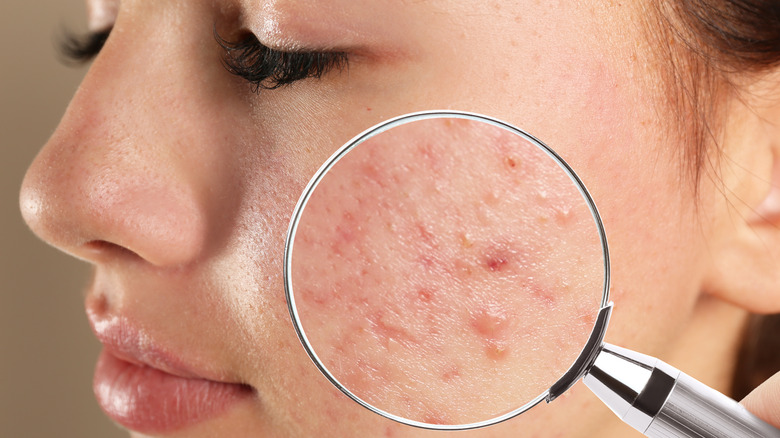Myths About Acne You Should Stop Believing
You wake up in the morning and head to the bathroom to get ready for work, when you notice a freshly formed pimple that has made its home on your cheek. While most people can relate to this experience, some may still feel insecure because of it. Verywell Health points out that acne can have negative effects on an individual's self-esteem, and can even contribute to feelings of depression and anxiety. Because of this, knowing about available treatment options and understanding why acne occurs is important.
Why does acne form in the first place? According to the Mayo Clinic, there is science behind these little bumps. The clinic shares that areas of the body with the most oil glands — such as the face, chest, and upper back — are more prone to developing acne. Acne can form if oil or dead skin cells clog the hair follicles that are connected to these oil glands. In addition, fluctuations in hormones can contribute to the buildup of oil. Therefore, women may notice an increase in acne during phases of their menstrual cycles, and teenagers may experience acne during puberty.
Anyone who is worried about their acne, whether their case is minor or severe, may consider visiting a dermatologist, which is a doctor who specializes in treating skin diseases. As described by the Mayo Clinic, potential treatments for acne include over-the-counter medications, creams applied to the skin, chemical peels, and prescription medications.
Misconceptions about acne
Despite being a common phenomenon that many people experience at some point, there are still many misconceptions about acne that have yet to be nipped in the bud. According to a 2020 study published in Current Health Sciences Journal, many patients who had acne vulgaris displayed a lack of knowledge about the skin disease. The researchers believe the overall public perception of acne is skewed due to misinformation about the disease, and that public education resources should be provided to combat misinformation.
One of the most hurtful myths about acne is that it's caused by a lack of hygiene, and that people with acne simply need to wash their faces more often. Dermatologist John Fournier shared with Boston Magazine that washing your face incessantly doesn't help to get rid of acne. In fact, the opposite could be true. Fournier explained that washing your skin too frequently can leave it dry, which stimulates the production of more oil that can clog pores.
Another common misconception about acne is that only teenagers develop it. This is also untrue, as people of any age can experience acne. Dr. San Filippo reports that he has treated patients in their 70s with acne (per Center for Surgical Dermatology). Additionally, while many people believe that stress leads to acne, the Center reports that this is only partially true. Someone who is already prone to acne could experience a breakout while stressed, but this might not occur in someone who doesn't normally develop acne.


